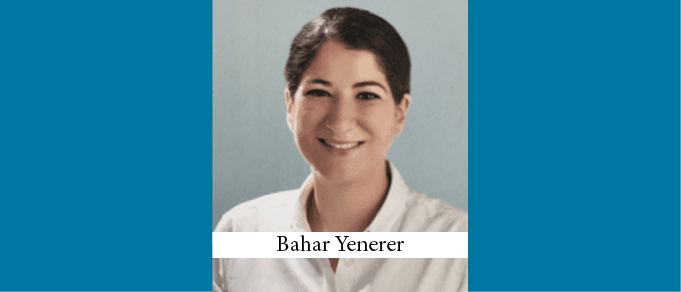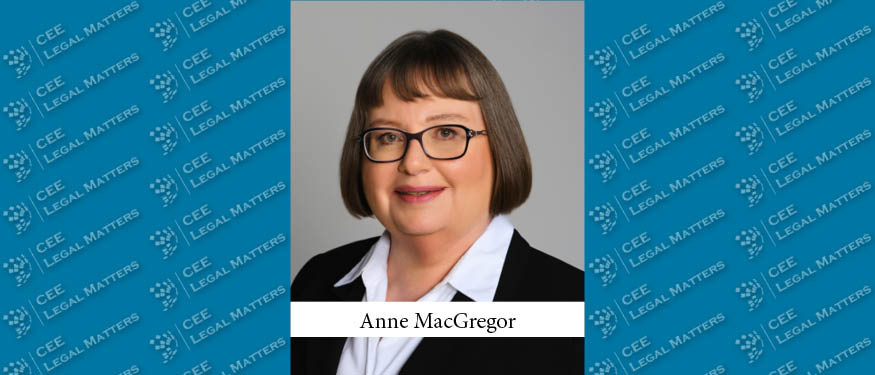Bahar Yenerer is the General Counsel of Atos in Turkey. Prior to joining Atos in 2012 she spent two years as a Senior Lawyer with ELIG. Prior to that she was a Senior Legal Counsel with Turkcell, Head of M&A and Corporate Affairs with the Yamaner & Yamaner Law Office, a Lawyer with Tekin Law Office, and a Legal Consultant with the Serap Zuvin Law Offices.
CEELM: Based on your experience, how has the role of the GC evolved in the last few years?
BAHAR: The role of the General Counsel is most definitely one of the ones that has seen most changes in recent days and it is constantly evolving. The main reason for that is that, today, the expectations for GCs have shifted from them being providers of pure legal input to them being business-oriented advisors. A GC is expected to act as a true business partner who supports the business as a whole, not just raise concerns over potential legal risks when needed.
Of course, this is happening while the old responsibilities are still in place. We still lead the legal department, many of us still handle compliance, we still oversee disputes when necessary, and we still supervise contracts, but all of these responsibilities are now a given, and we’re expected to handle all of these aspects handled smoothly while providing strategic advice to the company.
The GC needs to adapt and evolve with these enhanced expectations from our internal clients and our companies. At the same time, we need to ensure we push to change our own JDs to facilitate that.
CEELM: How so?
BAHAR: The scope of the GC was more limited in the past, and that was reflected in the organizational set-up. In the past, they’d be asked to offer input on a matter brought to their attention from a legal perspective, and then their job would be done. Today we are a part of management meetings and need to train ourselves to also understand what the business wants to achieve and be able to proactively provide input such as, when needed, offer guidance as to how we can take some risks.
Of course, we always see and assess risks, but we’re now expected to build up and apply our business knowledge and experiences and focus them towards advising how to mitigate risks while keeping the goals of the company as the end goal – not just to say “we can’t do this.”
CEELM: So how do GCs need to adapt in terms of skills and knowledge to meet these increased expectations?
BAHAR: The first obvious aspect is that we need to move beyond our legal knowledge training and position ourselves as part of the business. We need to understand it from the ground up to allow us to guide our internal client. The second aspect is that we need to enhance our soft skills today far more than we needed to in the past. To act as an advisor rather than a stop-gap requires quite a bit of interpersonal diplomacy.
CEELM: What do you believe has been driving this change?
BAHAR: I think it’s two self-enforcing factors. When you are a GC, you quickly realize you need to live and breathe with your company to be able to do your job well. You need to understand its needs and you need to immerse yourself in the business to be able to give any form of advice effectively. With that, the expectations of your company as to how well you understand it evolves and it soon becomes a question of you needing to adapt to these needs to be a part of the organization going forward.
Another big aspect is technology, which creates two additional forces. First, technology creates new risks – cybersecurity has been one of the most important topics for all companies these days, for example, and the GC is one of the key people who can help in mitigating the massive potential financial and reputational damage if things go wrong on this. On the other hand, technology has helped and will continue to help us overcome the ever-increasing work-flows we are faced with and generally help us be more efficient. With the routine work on our plates being moved out of the way, it is important for us -- and it is natural to expect us to – focus on new opportunities.
CEELM: How, then, does a General Counsel get to understand the business better?
BAHAR: First and foremost, make sure you are constantly connected with management. Have regular check-ins, understand what they are working on and what they are occupied with. Do the same as much as possible with the rest of the colleagues throughout the organization. Also, your business is not insular. Talk to your GC peers from other companies and try to connect yourself as much as possible with the business environment as a whole. It is no longer enough for you as a GC to keep apprised of how various pieces of legislation are being changed – you need to understand how companies – both yours and the rest – are working and what trends are influencing their operations.
CEELM: Looking towards the future, what are you most excited about on the horizon?
BAHAR: The most exciting thing for me right now is technology. It has already impacted our lives greatly both in terms of everything I already described, but even beyond that. As in any industry, technology enables flexibility in the workplace. New technologies make things more accessible remotely and give us the opportunity to be connected to business constantly. And, of course, the positive impact it has had on global teams is massive.
Technology for sure is what I am most excited about. The possibilities are endless in how it will affect our lives. And I am sure it will never come down to being fully replaced by any form of tech – rather, I’m excited to see how much it’ll improve our work in a great way.
This Article was originally published in Issue 6.3 of the CEE Legal Matters Magazine. If you would like to receive a hard copy of the magazine, you can subscribe here.















